CONFLICTELE ÎN MEDIUL MEDICAL: CAUZE, DIAGNOSTICARE ȘI STRATEGII DE REZOLVARE
DOI:
https://doi.org/10.52692/1857-0011.2024.2-79.33Cuvinte cheie:
conflicte medicale, drept medical, gestionarea conflictelor, bioeticăRezumat
Conflictele în cadrul echipelor medicale pot influența negativ calitatea îngrijirii și eficiența echipei, motiv pentru care studiul acestora este esențial. Cercetarea a avut drept scop analiza cauzelor conflictelor, aspectelor etico-juridice și propunerea unor metode de soluționare. Au fost analizate surse bibliografice, acte normative și aplicat un chestionar anonim pe 90 de lucrători medicali folosind testul „Autoevaluarea conflictualității” de V. F. Riahovski. Rezultatele au evidențiat că principalele cauze sunt comunicarea deficitară, stresul și resursele limitate. Soluțiile propuse includ dezvoltarea abilităților de comunicare, promovarea unei culturi a colaborării, implementarea unor proceduri transparente și oferirea sprijinului psihologic, toate contribuind la îmbunătățirea atmosferei de lucru.
Referințe
Andreev, V. I. Conflictology: The Art of Dispute, Negotiation, and Conflict Resolution. Moscow: Narodnoe Obrazovanie, 1995.
Antsupov, A. Ya., Shipilov, A. I. Structure of Conflict. Conflictology. Moscow: UNITY, 1999.
Beauchamp, T. L., Childress, J. F. Principles of Biomedical Ethics. Oxford UP, 2001.
Bercovitch, J., Houston, A. The Study of International Mediation: Theoretical Issues and Empirical Evidence. In Resolving International Conflicts: The Theory and Practice of Mediation, edited by J. Bercovitch, Lynne Rienner Publishers, 1996.
Brennan, T. A., Leape, L. L., Laird, et al. Incidence of Adverse Events and Negligence in Hospitalized Patients: Results of the Harvard Medical Practice Study I. New England Journal of Medicine, vol. 324, no. 6, 2004, pp. 370-376.
Dmitriev, A. V. Conflictology: Textbook. Moscow: Gardariki, 2001.
Fisher, R., Ury, W., and Patton, B. Getting to Yes: Negotiating Agreement Without Giving In. Penguin Books, 1991.
Goleman, D. Working with Emotional Intelligence. Bantam Books, 1998.
Grishina, N. V. Psychology of Conflict: Textbook. St. Petersburg: Piter, 2000.
Institute of Medicine (IOM). To Err is Human: Building a Safer Health System. National Academies Press, 2000.
Jehn, K. A. A Multimethod Examination of the Benefits and Detriments of Intragroup Conflict. Administrative Science Quarterly, vol. 40, no. 2, 1995, pp. 256-282.
Johnson, D. W. Reaching Out: Interpersonal Effectiveness and Self-Actualization. Allyn & Bacon, 2012.
Katz, N., Flynn, L. Understanding Conflict Management Systems and Strategies in the Workplace: A Pilot Study. Conflict Resolution Quarterly, vol. 31, no. 1, 2013, pp. 65-85.
Khasan, B. I., Sergomanov, P. A. Conflict Resolution and Negotiation: Textbook. Krasnoyarsk-Moscow, 2001.
Knaus, W. A., Draper, E. A., Wagner, D. P., Zimmerman,
J. E. An Evaluation of Outcome from Intensive Care in Major Medical Centers. Journal of General Internal Medicine, vol. 1, no. 5, 1986, pp. 359-367.
Kozyrev, G. I. Introduction to Conflictology: Textbook. Moscow: Vlados, 2000.
Leonard, M., Graham, S., Bonacum, D. The Human Factor: The Critical Importance of Effective Teamwork and Communication in Providing Safe Care. Quality and Safety in Health Care, vol. 13, suppl. 1, 2004, pp. i85-i90.
Pruitt, D. G., Rubin, J. Z. Social Conflict: Escalation, Stalemate, and Settlement. Random House, 1986.
Rondeau, K. V., Wagar, T. H. Reducing the Hospital Workforce: What Is the Role of Human Resources Management Practices? Hospital Topics, vol. 80, no. 1, 2002, pp. 12-20.
Rosenstein, A. H., O’Daniel, M. Disruptive Behavior and Clinical Outcomes: Perceptions of Nurses and Physicians. American Journal of Nursing, vol. 105, no. 1, 2005, pp. 54-64.
Schein, E. H. Organizational Culture and Leadership. John Wiley & Sons, 2010.
Shanafelt, T. D., Balch, C. M., Bechamps, G., et al. Burnout and Career Satisfaction among American Surgeons. Annals of Surgery, vol. 250, no. 3, 2009, pp. 463-471.
Sherif, M. Group Conflict and Co-operation: Their Social Psychology. Routledge & Kegan Paul, 1966.
Skvortsov, M. M. Methods of Conflict Resolution: Textbook. Moscow: Vlados, 1986.
Smith, M. The Importance of Training in Conflict Resolution. Journal of Conflict Management, vol. 3, no. 2, 2015, pp. 45-58.
Thomas, K. W. Conflict and Negotiation Processes in Organizations. In Handbook of Industrial and Organizational Psychology, edited by M. D. Dunnette and L. M. Hough, vol. 3, Consulting Psychologists Press, 1992, pp. 651-717.
Wallace, J. E., Lemaire, J. B., Ghali, W. A. Physician Wellness: A Missing Quality Indicator. The Lancet, vol. 374, no. 9702, 2009, pp. 1714-1721.
World Health Organization (WHO). Patient Safety: Rapid Assessment Methods for Improving Patient Safety in Health Facilities. WHO Press, 2005.
Descărcări
Publicat
Număr
Secțiune
##category.category##
Licență
Copyright (c) 2025 Buletinul Academiei de Științe a Moldovei. Științe medicale

Această lucrare este licențiată în temeiul Creative Commons Attribution 4.0 International License.



